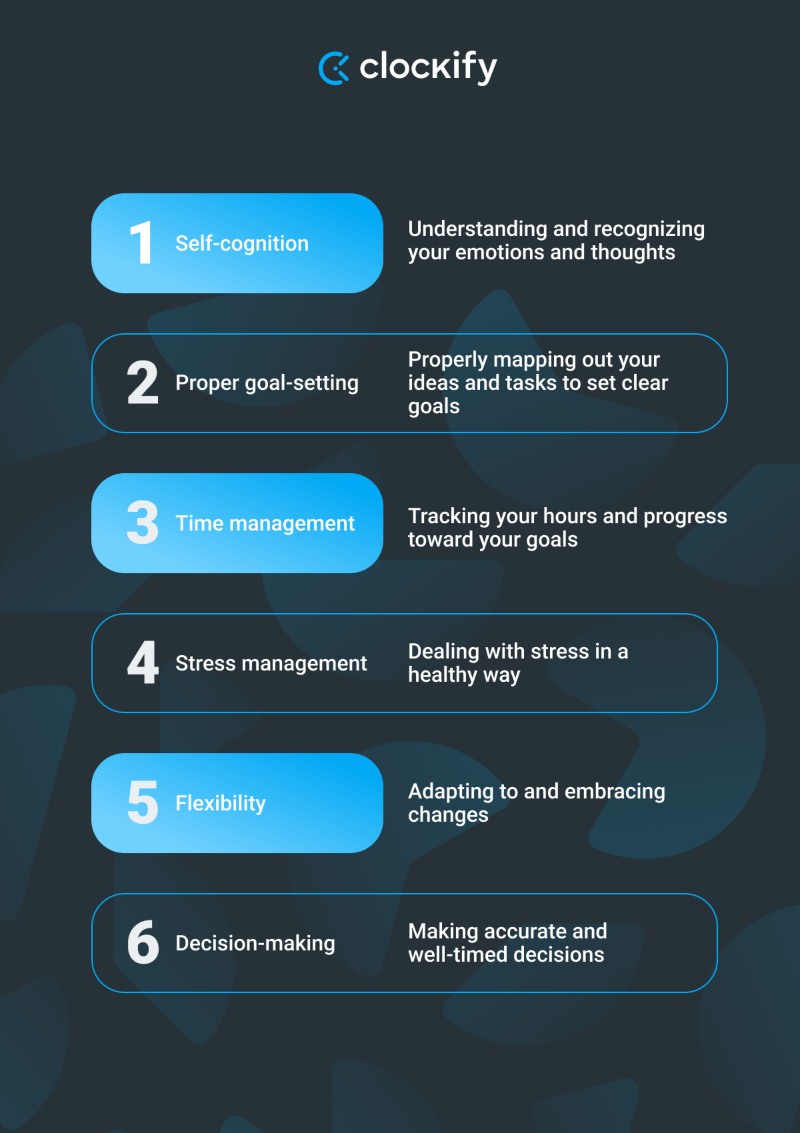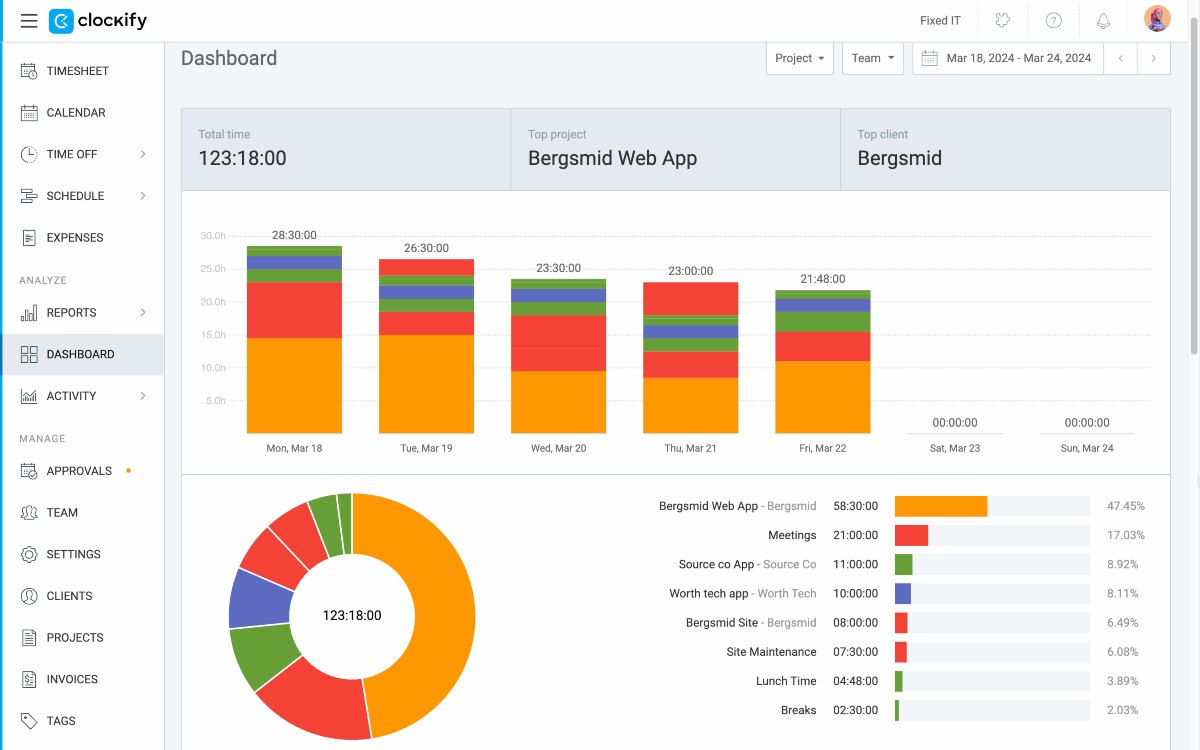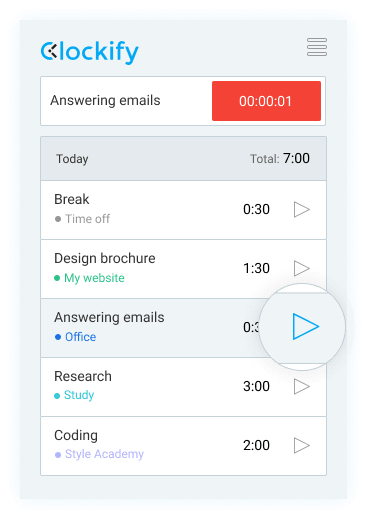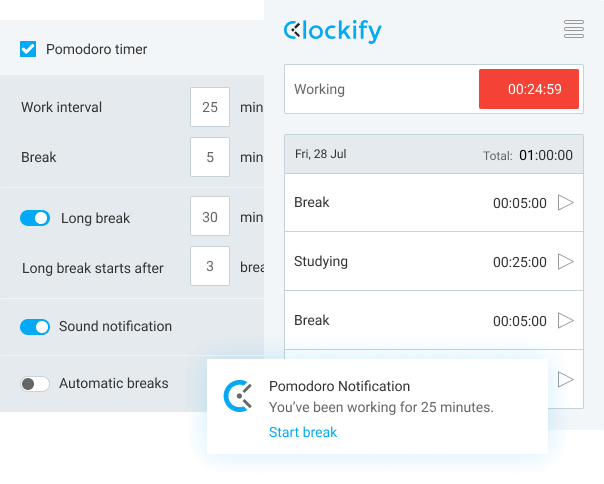Hearing the word “management” often evokes images of strict bosses and scared workers all around the world. However, we all manage things in our lives, whether we have the word “manager” in our job title or not.
We also manage our families, connections, and free time. However, self-management is a term we don’t hear about quite as often as we should.
Self-management is a learned skill that comes from an introspective process that requires time and patience. So, to shed light on the topic, we put our investigative cap on and went to work to discover more about the topic.
This blog post will cover the following:
- What self-management is,
- 6 important self-management skills,
- Examples of self-management,
- How important self-management is in the work environment, and
- Tips on improving self-management skills at work.
Without further ado, let’s dig in.

- Self-management is the individual’s ability to regulate emotions, thoughts, and behaviors, i.e. being in control of one’s self.
- Six key self-management skills are self-cognition, goal-setting, time and stress management, flexibility, and decision-making.
- Individuals with strong self-management skills are more productive in the workplace, more independent, and require less management by superiors.
- Practicing self-management skills is useful in all spheres of life, business and private, as well as in studies.
Table of Contents
What is self-management?
Self-management represents a process of cognizance and self-reflection that results in understanding your own:
- Emotions,
- Behavior patterns,
- Thoughts, and
- Actions.
The lines between work and personal life can become blurry at times and overcoming the daily pressures is best achieved by learning to self-manage.
💡 Clockify Pro Tip
Do you find it hard or nearly impossible to achieve work-life balance? The best way to do it is to stay ahead of the problem and inform yourself of the challenges that work-life balance imposes. Learn more about it in the text below:
What are the 6 self-management skills?
Self-management in itself represents a process, a way of carrying yourself and behaving in a certain way to reach the perfect place to achieve your goals.
So, in order to properly manage yourself, acquiring some skills is necessary. We’ve researched and isolated 6 key skills that every “self-manager” must possess:
- Self-cognition,
- Proper goal-setting,
- Time management,
- Stress management,
- Workplace flexibility, and
- Decision making.

Self-management skill #1: Self-cognition
In psychology, self-cognition refers to the collection of beliefs and opinions that an individual possesses about “self.” Understanding the depths of your character and the way you would behave in certain situations goes a long way in terms of improving your feelings and actions on an everyday basis.
If we draw a parallel between self-cognition and self-management, we begin to notice the ways these two concepts co-exist.
Self-cognition (or self-awareness) is a key skill that helps individuals recognize their emotions and thoughts, which in turn helps regulate feelings and actions in the personal and business world.
Before we even try to venture into the unknown, it becomes strikingly clear that self-cognition poses the initial step before developing any other crucial skills required for absolute self-management.
💡 Clockify Pro Tip
Understanding your emotions and the way certain things make you feel at work is crucial to feeling content on a daily basis. To learn more about emotions and managing them, we strongly recommend the following text:
Self-management skill #2: Proper goal-setting
Once you have mastered self-awareness and understand yourself more clearly, it’s time to set your goals.
There are many ways to properly set your goals (and expectations) depending on the outcome you want to achieve. A thing to remember — having your ideas and goals mapped out in front of you will result in improving your organizational skills, and in turn, self-management.
When it comes to goals themselves, you can try the following techniques to goal-setting:
- SMART goals — splitting your goals into Specific, Measurable, Attainable, Relevant, and Time-bound goals,
- PACT method — splitting your goals into Purposeful, Actionable, Continuous, and Trackable goals, and
- The 6 W’s — answering the questions to Who, What, When, Why, Which, and Where.
💡 Clockify Pro Tip
To achieve your goal successfully, you have to act smart and try SMART. To learn more about this goal-setting and goal-achieving technique, take a look at the blog below:
Self-management skill #3: Time management
Another key self-management skill that everyone has to hone and practice is proper time management. If you don’t have the time to set and achieve your goals properly, most of your self-management skills (if not all) will be rendered useless.
Therefore, learning how to manage your time effectively in both your professional and personal lives is crucial to becoming a successful “self-manager.”
One of the ways to do it is by tracking your work hours and progress in a day with the help of a time tracking system, such as Clockify.

Clockify tracks the time you spend on tasks and projects for you, without worrying about clocking-in and out. You click on the timer at the beginning of the day and turn it off once you finish your obligations.
Having a visual representation of your daily chores goes a long way in understanding how you spend your time.
On that note, use Clockify Summary Reports to analyze your time tracking habits. By doing so, you’ll get an insight into wasted time and improve your overall time management skills.
Self-management skill #4: Stress management
We all experience stress on a daily basis, whether we like it or not. We cannot simply escape stress, but learning how to address, manage, and reduce it is a skill necessary to achieve true self-management.
Aside from taking care of your health, finding ways to deal with stress will help you immensely in terms of improving your:
- Cognitive functions,
- Decision-making skills,
- Emotional intelligence,
- Organizational skills, and
- Overall feelings and actions.
There are many ways to manage stress, depending on your situation and position in business and life, so let’s name a few:
- Practicing proper time management,
- Remembering to take a break,
- Speaking to a healthcare professional, and
- Learning how to separate work and life.
Self-management skill #5: Workplace flexibility
If your job title entails making hard decisions and managing teams, learning how to be flexible is a must-have skill.
Flexibility in terms of self-management could refer to your ability to juggle tasks and adapt quickly to changes around you. The way you manage yourself in such situations, stress-free and open-minded, is the key to unlocking your flexibility potential.
Also, it might seem counterintuitive to speak of managing team members when the topic is self-management, but they generally go hand-in-hand. How?
Well, in order to manage someone else’s day, you first have to learn to guide yourself through thick and thin. And, in order to do that, being flexible and reasonable will make you learn about making compromises and decisions that you might not like.
Self-management skill #6: Decision-making
Finally, decision-making — the skill to separate true self-managers from the rest.
Proper decision-making represents the top of the pyramid when it comes to self-management skills, the final test if you will.
In other words, after you come to terms with your emotions and actions, set your goals, and learn to deal with time and stress, while being flexible in all aspects of your life, it’s time to make decisions.
Individuals that excel at self-management have all the necessary tools to make well-timed, accurate, and proper decisions at all times — whether they’re work-related or refer to something at home.
A good way to practice proper decision-making is stepping out of your comfort zone and putting yourself in situations that you’ve never been in — a true test of your resolve. Such situations will often result in putting you on the spot in terms of:
- Addressing issues,
- Prioritizing tasks,
- Problem-solving, and
- Your ability to regulate teams, time, and outcomes.
💡 Clockify Pro Tip
In case you’re still not meeting your goals and expectations after learning about self-management skills, here’s a text that might help you in improving team performance:
How is self-management important in the workplace?
Needless to say, self-management applies to all spheres of life, especially the business world. But why does self-management positively affect the overall business environment?
You’re about to find out.
Reason #1: Self-management boosts productivity
Simply put, employees that are well-versed in self-management are more efficient and more likely to finish their work assignments on time. In the same manner, managers and CEOs that properly manage themselves are better leaders, which further leads to better team productivity and performance overall.
Reason #2: Self-management encourages autonomy
Being in control of your behavior, thoughts, and emotions naturally leads to developing other essential self-management skills. Such a sense of control of your self leads to a sense of autonomy that reflects on work output, as well.
In other words, workers who believe in their skills and themselves take initiative and improve their team’s success.
Reason #3: Self-management renders micromanagement obsolete
In relation to autonomy, workers who have a great sense of responsibility and develop a sense of leadership
If the job is done at a high level and employees provide optimal results, micromanagement is unnecessary. Furthermore, managers can put their time into helping trainees and new employees since a level of trust is established between managers and hard-working employees.
Self-management: Examples and tips
Everything we’ve discussed so far might seem a bit abstract, which is why we’re about to provide a couple of examples to help give a clearer picture.
We’ve coupled them with expert HR tips to give you a better understanding of how self-management skills are materialized in real life.
Example #1: Self-management and CEOs
In most cases, managers and CEOs fail to recognize when they’re overworked and continue to push through. Thus, the negative effects of stress and lack of free time prevail, resulting in career burnout.
In fact, a study by Harvard Business Review on how CEOs manage their time shows that nearly 46% of a workday is spent on strategizing, which is time-consuming, affects stress levels, and can result in poor decision-making due to overwork.
How does self-management help CEOs?
Therefore, taking a step back and embracing self-management often provides a solution.
Example #2: Self-management and freelancers
Unlike CEOs, freelancers either work alone or have a very small team around them. Therefore, learning and practicing self-management might be the most crucial ability that a freelancer can acquire in order to achieve success.
How does self-management help freelancers?
Learning how to properly allocate time and make decisions are the two skills that most freelancers struggle with at first.
To get some real and field-tested perspective on the topic, we consulted our HR expert at CAKE.com, Aleksandra Babić. We spoke about the importance of self-management for freelancers in terms of staying motivated for work on a daily basis:

“As a freelancer, you’re well aware that you have to find ways to stay motivated since there’s no one keeping tabs on you. You practically become your own boss and have to find constant ways to reassure yourself that you’re doing the job in the right way.”
Example #3: Self-management and students
Aside from the working world, students are also among the many who suffer from poor self-management skills. In all honesty, most people start to develop those skills once they begin working, but it is not a bad idea to start in the early stages of college.
According to an article published by Psychology Today on the topic of academic problems and skills, some of the largest obstacles that students face are organizational skills and resilience.
How does self-management help students?
In terms of self-management, developing skills such as flexibility, time management, and proper goal-setting would go a long way in correcting bad habits and learning how to deal with unexpected situations.
Again, we consulted Aleksandra to get her opinion on self-management in applying certain skills in education.
In her opinion, the difference-maker is utilizing time in the best manner possible in terms of time management and time allocation:

“Time tracking is crucial when it comes to students’ self-management skills. Boxing out your day into study sessions and break sessions. In practical terms, time tracking allows you to take control of your schedule by prioritizing school tasks and setting objectives for a future time frame, whether it’s weeks or months.”
Track your goals: Consider Clockify to master self-management
All self-management skills and reasons to develop them boil down to one thing — taking control of your time and destiny. And, is there a better way of taking control of time than by tracking it?
Clockify is a free time tracker that lets you input your goals as projects and tasks and keep track of them at all times.

Using Clockify is simple — create an account and add people that you want working on your joined goals in a workspace. Then, select your project, write down your tasks for the day, and start the timer — it’s that simple.
Furthermore, Clockify allows you to set estimates for activities, such as goals’ length and then monitor progress to see how well you and your team perform.
When you feel your stress levels have reached their limits, take a break using the Pomodoro timer integrated into your Clockify app.

These are just some of the steps to help you work on your goals, but Clockify offers so much more, from detailed summaries to tracking expenses and more. So, what are you waiting for?



